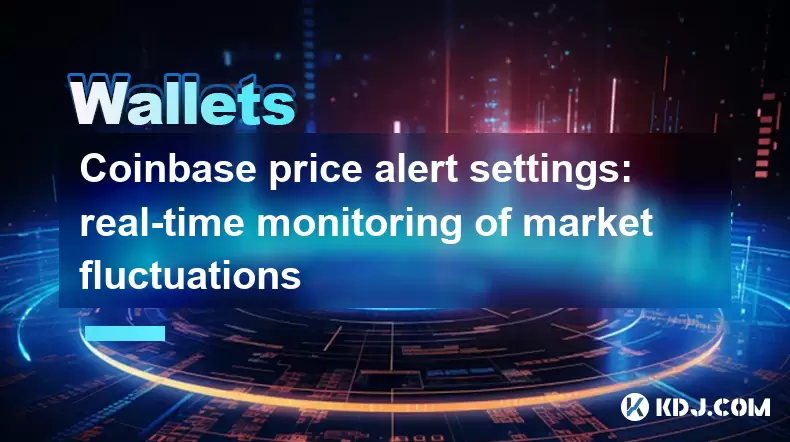-
 Bitcoin
Bitcoin $108,489.6704
1.13% -
 Ethereum
Ethereum $2,502.0528
2.92% -
 Tether USDt
Tether USDt $1.0002
0.00% -
 XRP
XRP $2.1941
0.51% -
 BNB
BNB $655.3375
1.00% -
 Solana
Solana $151.5977
1.27% -
 USDC
USDC $0.9999
0.00% -
 TRON
TRON $0.2768
0.32% -
 Dogecoin
Dogecoin $0.1676
2.86% -
 Cardano
Cardano $0.5675
0.98% -
 Hyperliquid
Hyperliquid $40.6109
7.48% -
 Bitcoin Cash
Bitcoin Cash $500.7746
2.09% -
 Sui
Sui $2.8328
2.03% -
 Chainlink
Chainlink $13.4452
1.26% -
 UNUS SED LEO
UNUS SED LEO $9.1623
0.39% -
 Avalanche
Avalanche $18.2267
2.24% -
 Stellar
Stellar $0.2382
0.00% -
 Toncoin
Toncoin $2.8885
1.68% -
 Shiba Inu
Shiba Inu $0.0...01159
0.91% -
 Litecoin
Litecoin $87.1827
0.88% -
 Hedera
Hedera $0.1511
2.90% -
 Monero
Monero $315.4992
-0.59% -
 Polkadot
Polkadot $3.4663
2.34% -
 Bitget Token
Bitget Token $4.6118
-0.65% -
 Dai
Dai $1.0000
-0.01% -
 Ethena USDe
Ethena USDe $1.0003
0.02% -
 Uniswap
Uniswap $7.2989
4.69% -
 Pepe
Pepe $0.0...01003
5.73% -
 Aave
Aave $275.5616
7.15% -
 Pi
Pi $0.5181
-2.49%
How to export transaction history in Trust Wallet? How long can the data be saved?
Exporting transaction history from Trust Wallet is easy: access your wallet, select the crypto, tap the three dots, choose "Export Transactions," pick a format and time range, then save securely.
May 07, 2025 at 12:28 am

Exporting transaction history from Trust Wallet is a straightforward process that allows users to maintain a record of their cryptocurrency transactions. This guide will walk you through the steps to export your transaction history and provide information on how long the data can be saved.
Accessing the Transaction History
To begin the process of exporting your transaction history, you first need to access it within the Trust Wallet app. Here’s how you can do it:
- Open the Trust Wallet app on your mobile device.
- Navigate to the wallet that contains the transactions you wish to export.
- Tap on the specific cryptocurrency whose transaction history you want to view.
- Scroll down to see the list of transactions for that cryptocurrency.
Exporting the Transaction History
Once you have accessed your transaction history, you can proceed with the export process. Follow these detailed steps:
- From the transaction list of the specific cryptocurrency, tap on the three vertical dots at the top right corner of the screen.
- Select the "Export Transactions" option from the dropdown menu.
- Choose the format in which you want to export the data. Trust Wallet typically supports CSV (Comma-Separated Values) format, which is widely used and compatible with many spreadsheet applications.
- Select the time range for the transactions you want to export. You can choose from predefined ranges or set a custom date range.
- After selecting the format and time range, tap on the "Export" button.
- The app will generate a file containing your transaction history. You will be prompted to choose where to save this file on your device. Select a location that is easily accessible and secure.
Saving the Exported Data
After exporting your transaction history, it's important to save the data securely. Here are some tips on how to do that:
- Save the file in a secure location on your device, such as a password-protected folder or a secure cloud storage service.
- Regularly back up the file to prevent data loss. You can use external hard drives, USB drives, or cloud storage solutions for this purpose.
- Encrypt the file if it contains sensitive information. Many cloud storage services offer encryption options, or you can use third-party encryption software.
How Long Can the Data Be Saved?
The duration for which you can save your exported transaction history depends on several factors:
- Storage Medium: If you save the data on your device or an external drive, the lifespan of the storage medium will determine how long the data can be saved. For example, SSDs and HDDs have different lifespans.
- Cloud Storage: If you use cloud storage, the data can be saved as long as the service remains operational and you continue to pay for the storage, if applicable.
- Data Integrity: Over time, data can become corrupted. Regular backups and checks can help ensure the integrity of your transaction history.
Using the Exported Data
Once you have exported and saved your transaction history, you can use it for various purposes:
- Tax Reporting: Many countries require cryptocurrency transactions to be reported for tax purposes. The exported data can be used to calculate gains or losses.
- Auditing: If you need to audit your cryptocurrency transactions, having a detailed history can be invaluable.
- Personal Records: Keeping a record of your transactions can help you track your investment performance over time.
Troubleshooting Common Issues
Sometimes, users may encounter issues when exporting their transaction history. Here are some common problems and their solutions:
- File Not Exporting: Ensure that you have enough storage space on your device. If the issue persists, try restarting the app or your device.
- Incomplete Data: If the exported file does not contain all your transactions, check the time range you selected during the export process. Make sure it covers the period you need.
- File Format Issues: If you are having trouble opening the CSV file, ensure that you are using a compatible application like Microsoft Excel or Google Sheets.
Frequently Asked Questions
Q: Can I export transaction history for all cryptocurrencies in Trust Wallet at once?
A: No, Trust Wallet currently does not support exporting transaction history for all cryptocurrencies at once. You need to export the history for each cryptocurrency individually.
Q: Is there a limit to the number of transactions I can export at one time?
A: Trust Wallet does not impose a specific limit on the number of transactions you can export. However, the size of the exported file may be limited by your device's storage capacity.
Q: Can I export transaction history from the Trust Wallet web version?
A: As of now, Trust Wallet does not have a web version. The export feature is only available in the mobile app.
Q: Will exporting my transaction history affect my wallet's security?
A: Exporting your transaction history does not affect the security of your wallet. However, ensure that you save the exported file securely to prevent unauthorized access to your transaction data.
Disclaimer:info@kdj.com
The information provided is not trading advice. kdj.com does not assume any responsibility for any investments made based on the information provided in this article. Cryptocurrencies are highly volatile and it is highly recommended that you invest with caution after thorough research!
If you believe that the content used on this website infringes your copyright, please contact us immediately (info@kdj.com) and we will delete it promptly.
- Ripple, Stablecoin, Adoption: RLUSD Leading the Charge
- 2025-06-30 14:30:12
- Bitcoin ETF, IBIT, and the Bull Flag: Is $144,000 on the Horizon?
- 2025-06-30 14:50:12
- Bitcoin, Passive Income, and a Bull Raise: Riding the Crypto Wave
- 2025-06-30 14:30:12
- Bitcoin, Personal Loans, and Omega 88: A New Era in Lending?
- 2025-06-30 15:09:14
- Saylor's Strategy: How MicroStrategy's Bitcoin Bet is Reshaping Finance
- 2025-06-30 14:52:14
- Metaplanet's Bitcoin Blitz: From Zero to Hero in the Corporate Treasury Race
- 2025-06-30 15:10:54
Related knowledge

Coinbase price alert settings: real-time monitoring of market fluctuations
Jun 29,2025 at 07:00am
Setting Up Coinbase Price AlertsTo begin real-time monitoring of market fluctuations on Coinbase, users can utilize the built-in price alert feature. This function allows you to receive notifications when a cryptocurrency reaches a specific price point. To access this setting, open the Coinbase app or log in via the web platform. Navigate to the 'Prices...

How to stake cryptocurrencies on Coinbase? Benefits and risks
Jun 27,2025 at 06:36pm
Understanding Cryptocurrency Staking on CoinbaseStaking cryptocurrencies involves locking up digital assets to support the operations of a blockchain network, typically in return for rewards. Coinbase, one of the most popular cryptocurrency exchanges globally, offers staking services for several proof-of-stake (PoS) coins. Users can stake their holdings...

Differences between Coinbase Pro and Coinbase: platform function comparison and analysis
Jun 29,2025 at 08:21am
Overview of Coinbase and Coinbase ProWhen exploring the cryptocurrency trading landscape, users often encounter two platforms under the same parent company: Coinbase and Coinbase Pro. While both are operated by the same organization, they cater to different types of users and offer varying features. Coinbase is primarily designed for beginners and casua...

What to do if your Coinbase account is frozen? Unfreezing process and preventive measures
Jun 30,2025 at 03:49am
Understanding Why Your Coinbase Account Might Be FrozenIf your Coinbase account is frozen, it typically indicates that the platform has detected suspicious activity or potential violations of its terms of service. This could be due to a variety of reasons such as unusual login attempts, high-risk transactions, or incomplete verification steps. Coinbase ...

How to contact Coinbase customer service? Support channels and response times
Jun 28,2025 at 01:29pm
Contacting Coinbase Customer Service: Support Channels and Response TimesIf you're a user of Coinbase, reaching their customer service team may become necessary for various reasons, such as account verification issues, transaction disputes, or technical difficulties. Understanding the different support channels available and what to expect in terms of r...

Coinbase advanced trading function usage tutorial: limit orders and market orders
Jun 28,2025 at 09:07pm
Understanding the Difference Between Limit Orders and Market OrdersWhen using Coinbase's advanced trading features, it is crucial to understand the fundamental difference between limit orders and market orders. A market order executes immediately at the best available price on the market. This type of order ensures that your trade goes through quickly, ...

Coinbase price alert settings: real-time monitoring of market fluctuations
Jun 29,2025 at 07:00am
Setting Up Coinbase Price AlertsTo begin real-time monitoring of market fluctuations on Coinbase, users can utilize the built-in price alert feature. This function allows you to receive notifications when a cryptocurrency reaches a specific price point. To access this setting, open the Coinbase app or log in via the web platform. Navigate to the 'Prices...

How to stake cryptocurrencies on Coinbase? Benefits and risks
Jun 27,2025 at 06:36pm
Understanding Cryptocurrency Staking on CoinbaseStaking cryptocurrencies involves locking up digital assets to support the operations of a blockchain network, typically in return for rewards. Coinbase, one of the most popular cryptocurrency exchanges globally, offers staking services for several proof-of-stake (PoS) coins. Users can stake their holdings...

Differences between Coinbase Pro and Coinbase: platform function comparison and analysis
Jun 29,2025 at 08:21am
Overview of Coinbase and Coinbase ProWhen exploring the cryptocurrency trading landscape, users often encounter two platforms under the same parent company: Coinbase and Coinbase Pro. While both are operated by the same organization, they cater to different types of users and offer varying features. Coinbase is primarily designed for beginners and casua...

What to do if your Coinbase account is frozen? Unfreezing process and preventive measures
Jun 30,2025 at 03:49am
Understanding Why Your Coinbase Account Might Be FrozenIf your Coinbase account is frozen, it typically indicates that the platform has detected suspicious activity or potential violations of its terms of service. This could be due to a variety of reasons such as unusual login attempts, high-risk transactions, or incomplete verification steps. Coinbase ...

How to contact Coinbase customer service? Support channels and response times
Jun 28,2025 at 01:29pm
Contacting Coinbase Customer Service: Support Channels and Response TimesIf you're a user of Coinbase, reaching their customer service team may become necessary for various reasons, such as account verification issues, transaction disputes, or technical difficulties. Understanding the different support channels available and what to expect in terms of r...

Coinbase advanced trading function usage tutorial: limit orders and market orders
Jun 28,2025 at 09:07pm
Understanding the Difference Between Limit Orders and Market OrdersWhen using Coinbase's advanced trading features, it is crucial to understand the fundamental difference between limit orders and market orders. A market order executes immediately at the best available price on the market. This type of order ensures that your trade goes through quickly, ...
See all articles

























































































